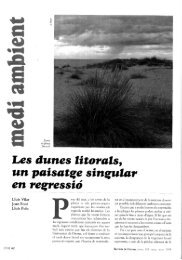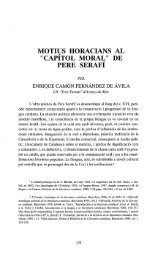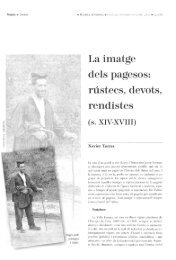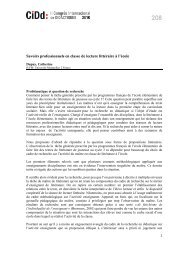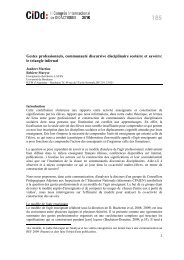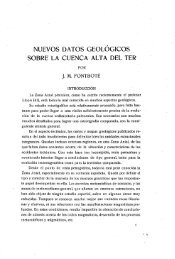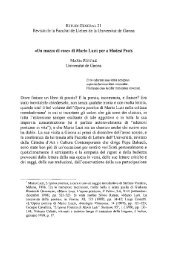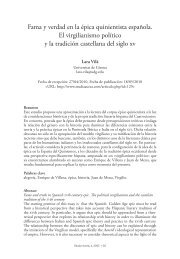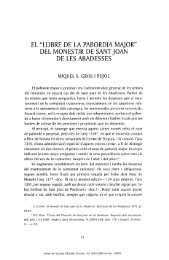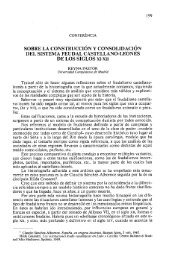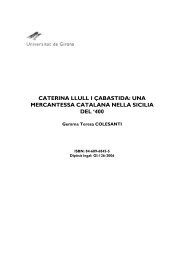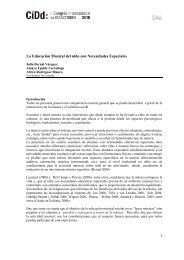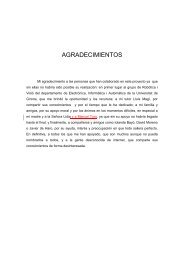257 Susann Fischer: The Catalan Clitic System. A Diachronic ...
257 Susann Fischer: The Catalan Clitic System. A Diachronic ...
257 Susann Fischer: The Catalan Clitic System. A Diachronic ...
Create successful ePaper yourself
Turn your PDF publications into a flip-book with our unique Google optimized e-Paper software.
258 Buchbesprechungen<br />
according to which clitics must appear in 2nd position cannot be maintained.<br />
Yet, <strong>Fischer</strong>’s example (74) [(1) here] arguably is not a counterexample<br />
to the Tobler Mussafia law; since according to successive works by<br />
Lema and Rivero topicalised elements such as those in (74) should be<br />
regarded as outside the range of the Tobler Mussafia effect, which applies<br />
within CP (see Lema / Rivero, 1991; Lema, 1994).<br />
(1) … e io fer-li he tota aquella honor que hem serà possible,<br />
‘and I will give him all the honor that will be possible for me,’<br />
(74) in <strong>Fischer</strong>, 2002: 50<br />
Second, following the author, that clitics appear both pre- and postverbally<br />
in finite clauses holds true of a longer period than usually thought: contemporary<br />
<strong>Catalan</strong> only allows preverbal clitics with finite verbs, but postverbal<br />
clitics were still attested in the 19th century. Interestingly, postverbal<br />
clitics with finite verbs are found in contemporary Romance in Portuguese<br />
(as expressed on p. 94), but also in Asturian and Leonese varieties, which<br />
allow them pre- and postverbally: It would be relevant to find out if the<br />
meaning contrast between sentences with different clitic/verb positions<br />
holds in these varieties as claimed by <strong>Fischer</strong> for Old <strong>Catalan</strong>.<br />
(2) Tol mundu lo dicía. Gustábame munchu tener un rapazu en cuello<br />
(…)<br />
‘Everybody said so. I liked very much having a child in my arms’<br />
Cuándu lu traen…? Y dexarésme traelu en cuello?<br />
‘When are they bringing him? And will you let me have him in my<br />
arms?’ (Asturian: El duviellu by M. Josefa Canellada)<br />
Chapters 3 and 4 review former research on the diachronic syntax of<br />
Romance. <strong>The</strong> predictions of the hypotheses presented are not always sufficiently<br />
explicit for the non-specialised reader and on occasion do not<br />
seem to be made full justice (as for example with Halpern, 1995, which, as<br />
far as we understand, makes no predictions as to clitics in medial position,<br />
except that they must have a host to their left). An argument held against<br />
prosodic accounts is that on occasion the clitic is postverbal when there is<br />
another element in initial position, seemingly precluding enclisis to the<br />
verb; yet, the first element could be topicalised, in which case enclisis to<br />
that first element would not be feasible – such a possibility could be<br />
entertained.



